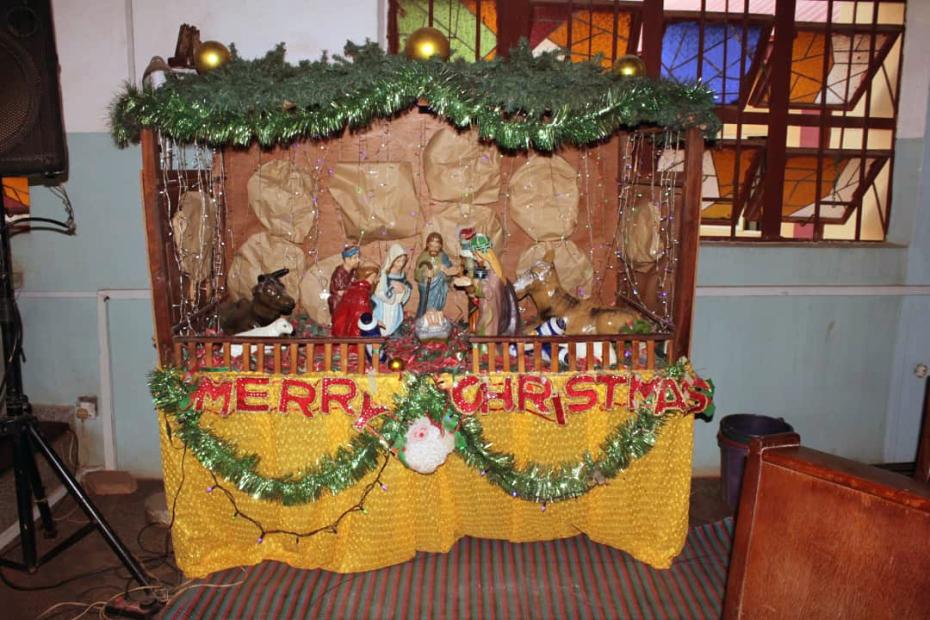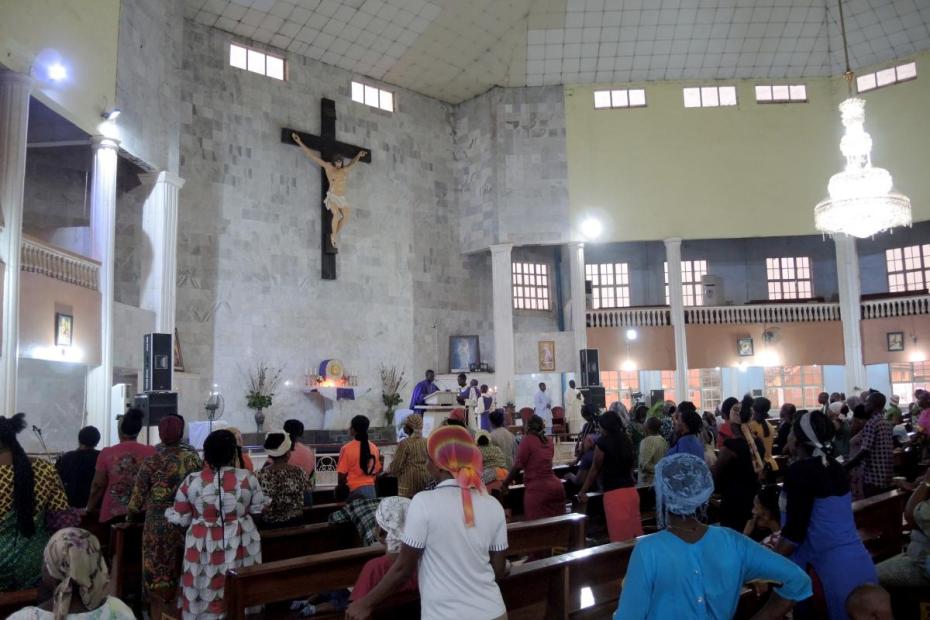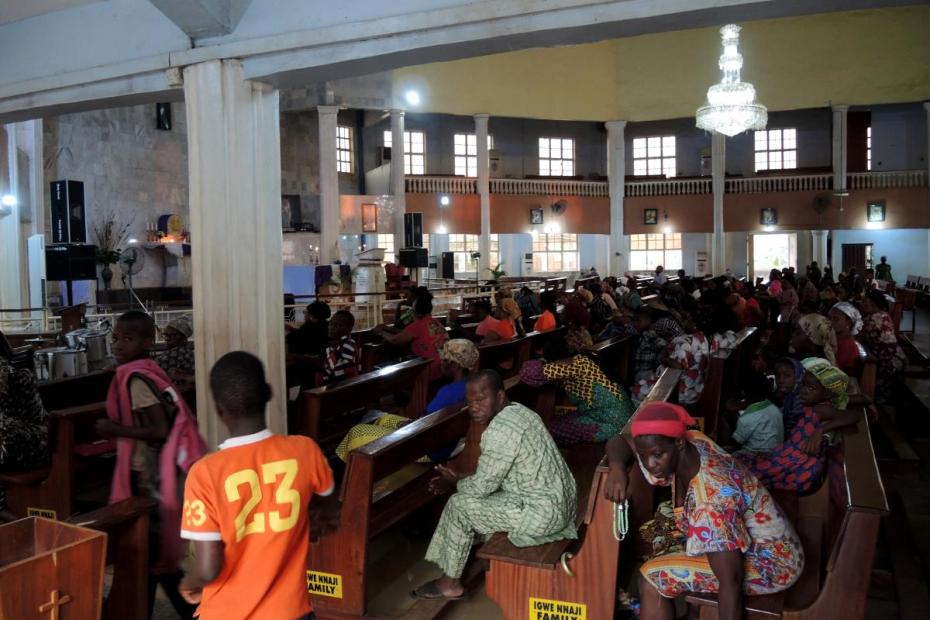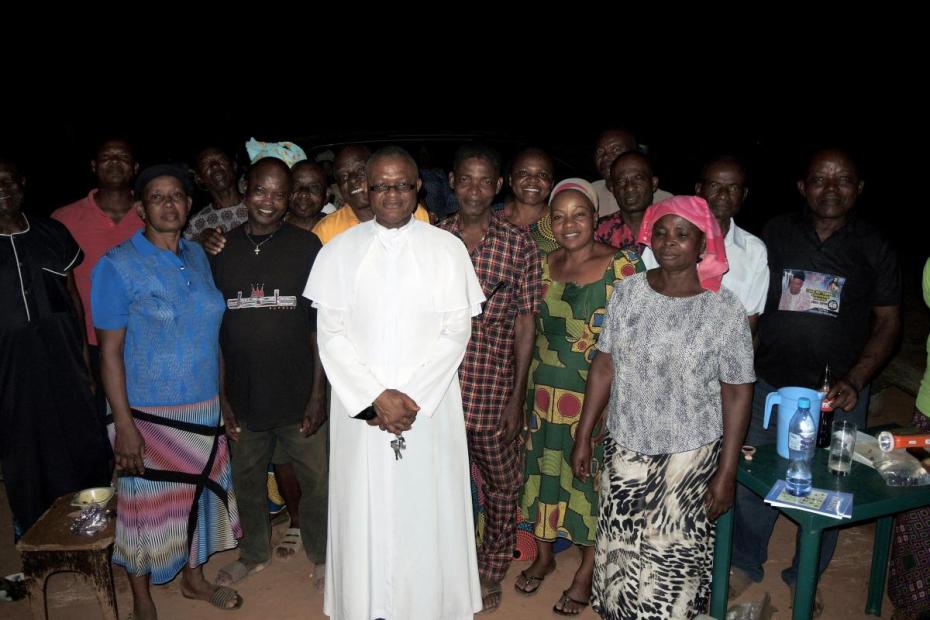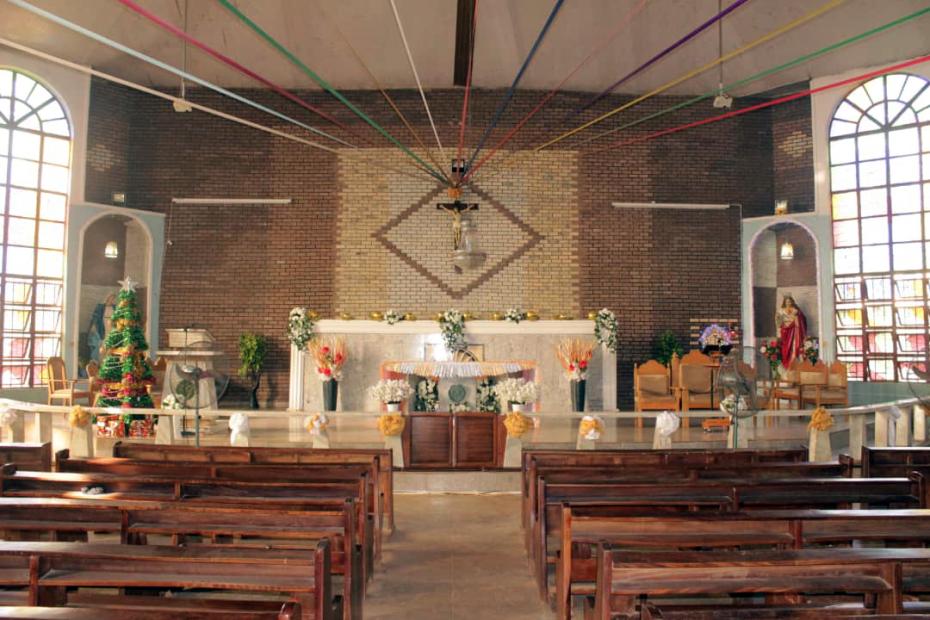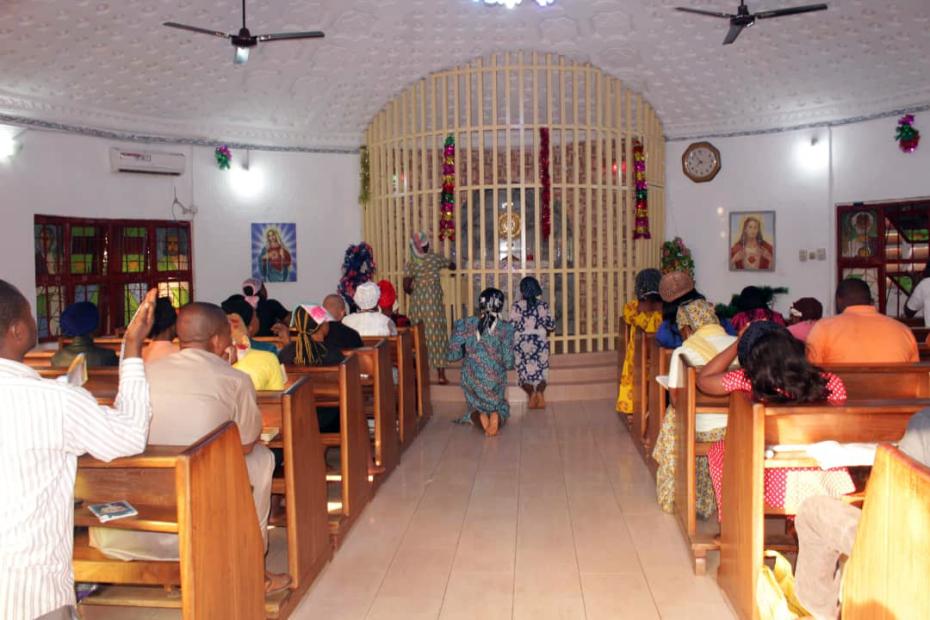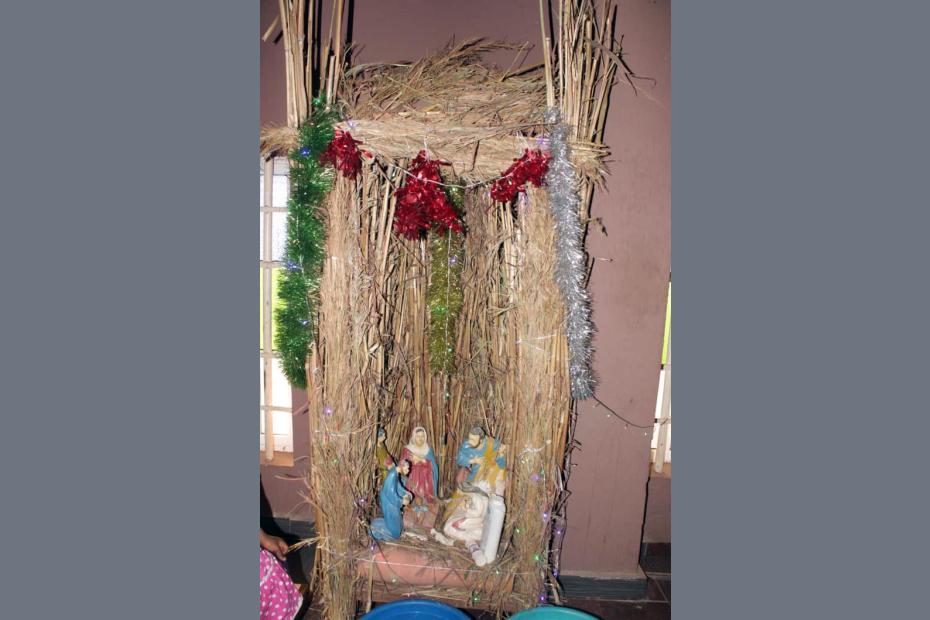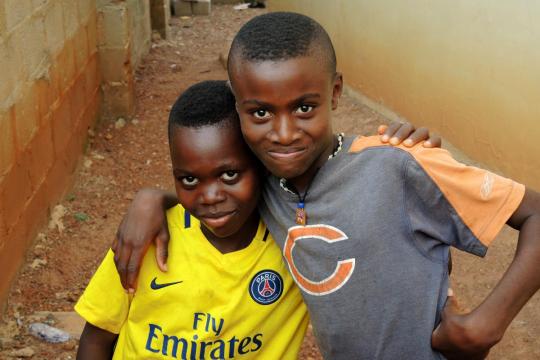Christmas in Enugu is probably the most anticipated time of the year. Paradoxically, it is a time when Enugu city nearly empties out.
In the weeks before Christmas, people prepare by stocking up on food, especially big bags of rice, to bring back to their home villages.1 School vacation begins, and “end of year” parish organization gatherings are all wrapping up by December 15 in preparation for departures. There is not a well-developed range of Advent traditions, like Advent wreaths, but a recent trend has taken hold to celebrate a nine-day novena of prayers and Masses before the Christmas break. The western trappings of Christmas, like Santa Claus, Christmas trees, and pictures of reindeer and snowmen are rarely to be seen.
By about December 20, people who can are expected to return to their home villages to celebrate, and generally stay there until after New Year. Many stay with family in the village, though more prosperous families keep a home there (often bigger and better than they have in Enugu) almost exclusively for use at Christmas. Even for those whose parents were born in the city, the village remains their foundation and is the place to return to for Christmas.2 Children will get to play with their extended relatives, and it may be the only time of the year, aside from funerals, when they all see each other.
The two biggest cultural manifestations of Christmas are an important tradition of providing new clothes and a tradition of providing food in abundance.
“You might be asleep as a child and the family will sneak in to measure your feet while you are sleeping and will usually end up with shoes too long for you, but you will grow into them… You might get a watch or something. But new clothes are the most important… You go to Mass Christmas eve in your old clothes, and you hope that you got something new, and you wake up in the morning and people give you the clothes and you feel overjoyed… You wear them to Christmas Mass, but when you come home you have to take them off so that you don’t get them dirty. That’s time again for cooking and preparation. When cooking is finished, you put on your new clothes and shoes again, and raise your arms to show people the beautiful new clothes you have. People come over to your house, and you visit other houses: your grandmother, aunt, all your relations, and each place you come, they will ask you to eat. If you say you’ll not eat, people will see that you have something evil in your heart... I came back as a boy with my stomach so [full] I was crying, and my mother rubbed it with kerosene.”
People sit, the women serve food, and “the men drink palm wine, and men tell stories, [and there is] dancing.” The women seem to join in drinking palm wine as well.
Back in Enugu city, there are celebrations as well. For a modest number of Catholics, their now urban home is on the site of their ancestral village, land that the city has encroached on. Others, including the parish priest, cannot leave for Christmas, though he will usually take some time at home.
- 1The descriptions here are based on conversations at Hearts of Jesus and Mary Parish, Enugu city, December 12-16, 2019, as people were preparing to return home.
- 2 In preparation for marriage, the banns of marriage for the bride and groom from Enugu city must be read not only in their home parishes, but also in their ancestral villages. People are typically brought there to be buried as well.
